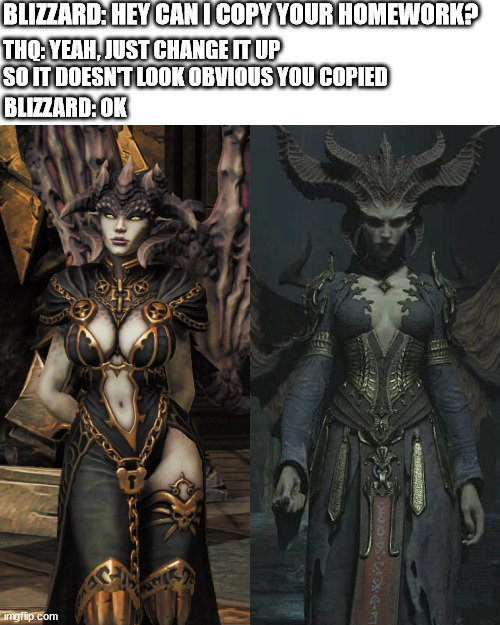#thq
Text
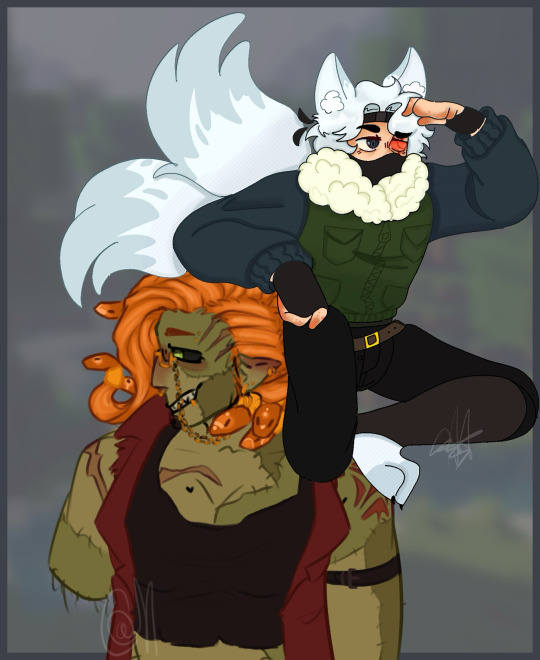
Collab with @cheshiremongrel
#fanart#minecraft#digital art#my art#thq#hermitcraft#hermitcraft smp#hermitcraft fanart#artists on tumblr#art collab#collaboration#zombie#zombie cleo#ethoslab fanart#hermitcraft season 10#hermitcraft cleo#etho fanart#ethoslab
138 notes
·
View notes
Text

Holy Magic Century / Quest 64 (Imagineer, THQ, 1998)
236 notes
·
View notes
Text
youtube
You can't have a conversation about important video game history without talking about this video of Neal Pabon pouring out a Saints Row-branded 40oz on the steps of THQ's office on the company's final day.
78 notes
·
View notes
Text
#OnThisDayInGaming! 🎂
Evil Dead: Hail To The King for the Ps1 turns 23 today in North America!

67 notes
·
View notes
Text
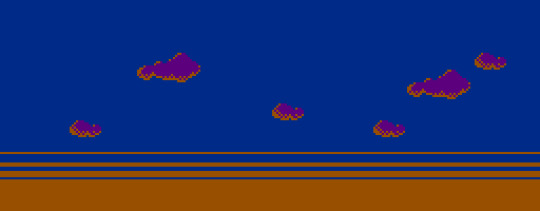

Attack of the killer tomatoes (NES) (1991)
#attack of the killer tomatoes#thq#nintendo#nes#nintendo entertainment system#famicom#retrogaming#adaptation#pixel aesthetic#pixel graphics#pixel background
37 notes
·
View notes
Text
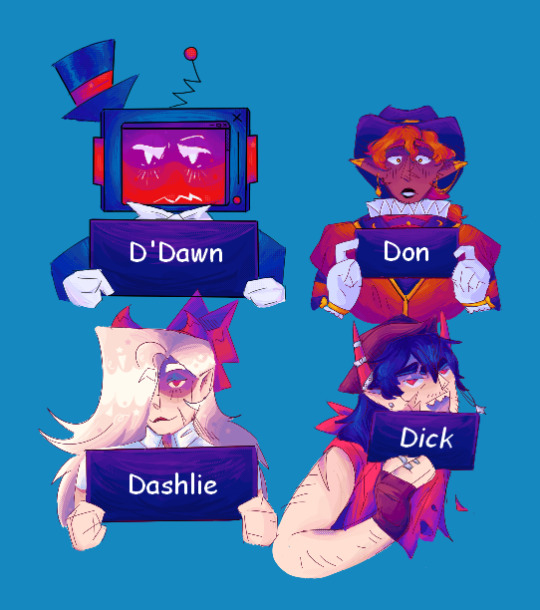
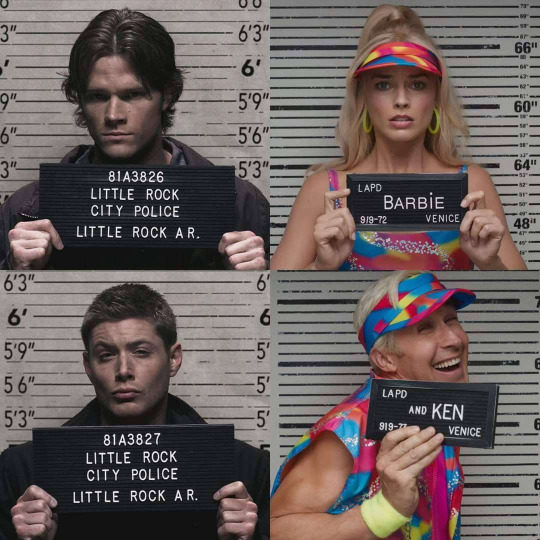
Your honour I've gone fucking insane
THIS TOOK SO LONG BUT IT'S SO SILLYY
41 notes
·
View notes
Text
Posting these before I go to sleep bcs I’m tired but I couldn’t stop thinking of this, D-GANG REDESIGNS GRAHHH
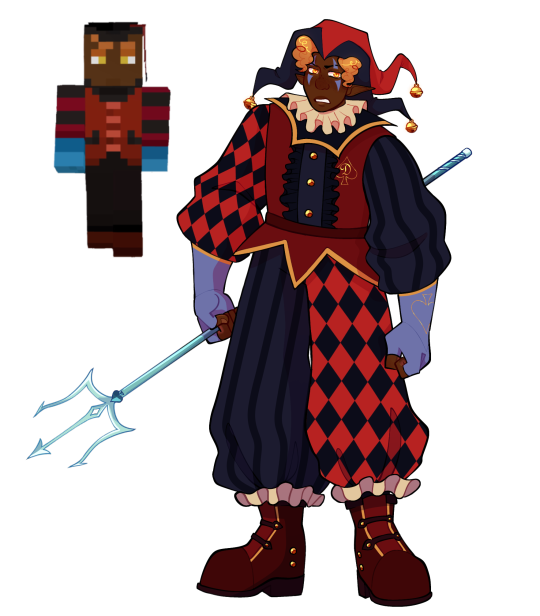
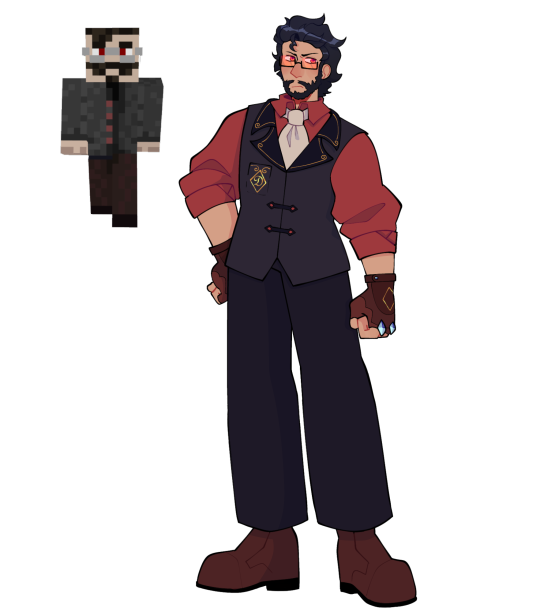
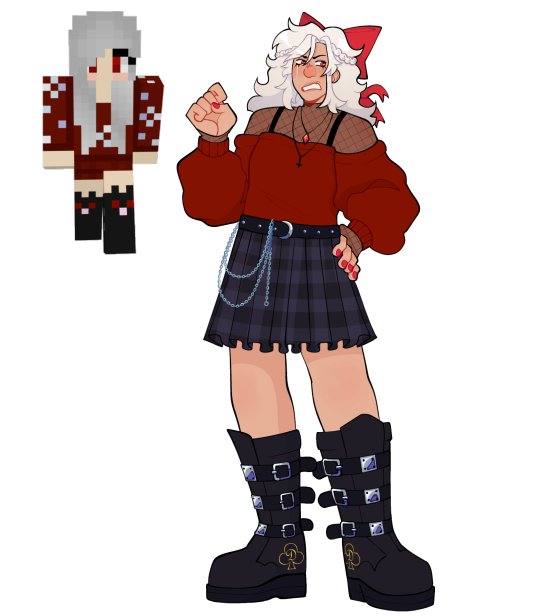
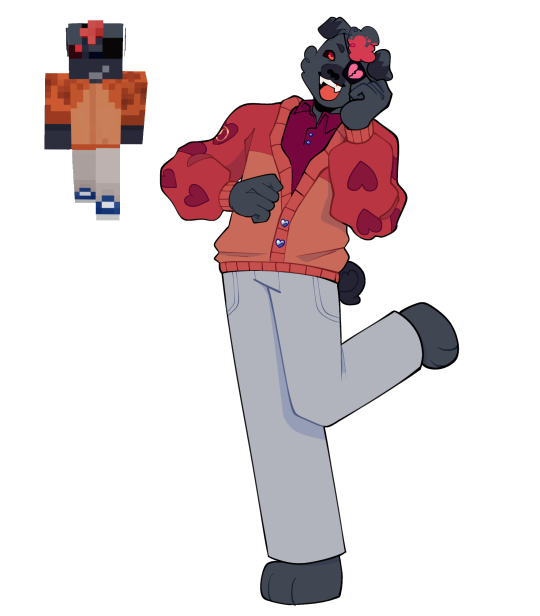

Ok so I have my own thoughts and little tidbits about the designs soooo hehehe!!
Don:
I LOVEEE designing jester outfits I had to give him the whole fit
Spades motif because spades represent rebellion, transformation, and acceptance. Since he was the first d-gang member we saw be redeemed-ish I thought it’d fit
Trident from s3 :)
Richard:
Adapted his s1 design, slicked his hair back bcs Nick would wear his down/forward. I didn’t want to give him the cowboy design he had in s3 because although it’s cool I also don’t think he’d want to continue being like Nick when by then he’s come into his own identity as a person
Diamonds motif for hard-working, growth, and hidden depths, but also diamonds are one of the lower classes and Richard was a grunt man for Duni
Dashlie:
Similar to Richard where I adapted her s1 fit, I think she’d experiment more with fashion though and end up with a more alternative style compared to Ashlie’s preppier one
Clubs motif for hotheaded, recklessness, and strength. Like diamonds it’s lower in the ranking
She has a scar through her right eye, mainly due to the 100th episode, she has a mechanical eye and you’d sooner catch her DEAD for the hundredth time than going near an eyepatch and end up being compared to Duni
Duni:
Tried to give him a warmer, cozier look. I have a good amount of headcanons about Duni, one of which being he isn’t actually a clone of Uni but was just so obsessed with him he kept resetting the world, doing whatever it would take for him to fall in love with him, and slowly became more and more like him in an attempt to have him love him more
Mostly based on his s3 design but take off the eyepatch and give him his regular eyes and it’s just what I imagine for his s1 design
Hearts motif for romance, dependance, and passion
DDawn:
Very fancy man, his design doesn’t change much from season to season other than him getting more banged up so this is a s1 design and then in later seasons his clothes are more torn and his screen cracked
Instead of a card suit he gets the “A” for ace, the most powerful card in any suit. This is mostly to represent how he planned to kill Duni and take the wish for his own, he was the last living D-Gang member
Ngl, accidentally Squip inspired with the circuit pattern
All of them have a “D” emblazoned somewhere on their outfits
#Don and Richard have their ‘D’ symbol on opposite sides of their chest because uhhhhhhh#I love the lgbtq community#the hardcore quest#thq#Unicomics THQ#thq d-Gang#DonDon THQ#Richard THQ#Dres THQ#Dick THQ#Dashlie THQ#Duni THQ#DDawn THQ#ok but my idea with Duni is that#in the original timeline before any of the resets#he was just another random pug that uni met#named something else completely#and he found and used the runes to reset the world when something really bad happened and uni died#and he met uni again and fell in love with him#and he realized he could just keep finding the runes and resetting the world#until he got it right and uni fell in love with him#and he became so obsessed that he started dressing similar to him#dyed his hair similar to him#set up these schemes to always have his attention#made his own dawnbot#made clones of his friends to be ‘closer’ to him#cause to me it’s weird that a clone would be in love with the original#especially if he’s a clone then unis sibling would already be his siblings and that’s just weird#I dont like the duni x uni ship though cause it’s toxic. but I just want it to be a little less weird in universe#Reese’s art
80 notes
·
View notes
Text
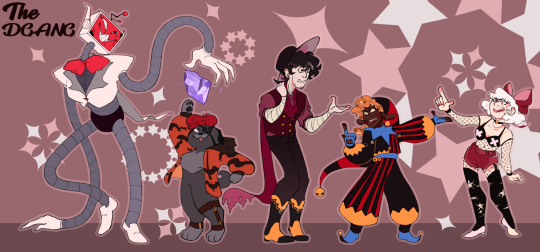
After a month of Art Block theyre FINALLY HERE
THE DELICIOUS GANG
Complete with- Evil Robot with noodle limbs and big naturals
-Bad dog BAD DOG
-Nickelback fanboy whose exhausted and insecure
-Small and Angry
-Token Woman
#the hardcore quest#thq#naps art#shootzki#unicomics#dawnofriku#ashlie celeste#ddawn#duni#dres#dashlie#don don#im so normal about them#my designs have DRASTICALLY changed since too#i should go back and like compare designs#dons a cat boy now too I dont make the rules#its us
69 notes
·
View notes
Photo

36 notes
·
View notes
Text
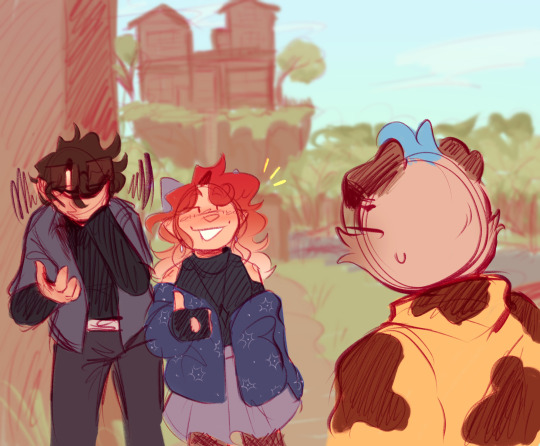
Day 5: Vampires
remember when s2 ashlie basically took nick out back and killed him. i do
#thq#the hardcore quest#ashlieceleste#shootzki#unicomics#thqtober#bugs art#mf was like oh fuck yeah im normal and then ash took him around the corner and turned him again and he just goes GOD FUCKING
44 notes
·
View notes
Text

Quest 64
Imagineer / THQ
Nintendo 64
1998
119 notes
·
View notes
Photo

In 2009, now-defunct entertainment software developer and publisher THQ commissioned a gold-plated Nintendo Wii to be delivered to Buckingham Palace as part of a marketing stunt meant to promote their new game, BIG Family Games. The game contained 24 classic family games, from lawn darts to bocce. Per Danielle Robinson, THQ’s product manager at the time, “BIG Family Games is the ultimate Wii game to get all family members, from grandparents to young children, playing together. The Royal Family is arguably the most important family in the country so we felt that they had to have a copy of the new game. But we thought that Her Majesty the Queen wouldn’t want to play on any old console, so an extra-special gold one was commissioned. We hope that she and the rest of the Royal Family enjoy the game!”
Due to the Palace Correspondence Team’s understandably strict policy when it comes to gifts, however, for security reasons, the console never actually made it into the Palace, let alone into the Queen’s hands. It was subsequently sent back to the THQ offices, unbeknownst to the rest of the world, who assumed that it had reached its final destination, living the life of royalty. When THQ went bankrupt in 2012, “The Royal Wii” fell off of the radar, and nobody really knew what became of it. However, five years later, it resurfaced, having been acquired by a collector specializing in developer hardware, who had obtained it from a contact he had at THQ. He ultimately sold the console, and it has been held quietly in our consignor’s hands since then.
Presented here is the ultimate Wii collectible, commissioned especially for Her Majesty the Queen herself for a (somewhat goofy, and ultimately unsuccessful) marketing ploy, “The Golden Wii.” The console and controller are both plated in 24 karat gold. Both exhibit minor handling wear, with the controller displaying scattered chips to the gold plating. The bundle includes the console, one controller, a copy of BIG Family Games, sensor bar, and all necessary cables. The Wii will come with a Letter of Provenance from our consignor attesting to its history and authenticity. Don’t miss your opportunity to own this truly one-of-a-kind Nintendo collectible! (Crown Jewels not included.)
#queen elizabeth ii#wii#nintendo#thq#The Royal Wii#The Golden Wii#The Royal Family#Her Majesty the Queen
807 notes
·
View notes
Text
Thoughts on The Punisher for the PS2 & Xbox? 💀

20 notes
·
View notes
Text

Ghost in the Shell for the PlayStation 1 console
Reviewing "Ghost in the Shell," particularly the 1995 anime film directed by Mamoru Oshii, from a philosophical standpoint involves exploring its rich narrative and thematic content, which delve into questions of identity, consciousness, and the nature of humanity in an increasingly technological world.
1. The Nature of Identity and Self in a Technologically Advanced World:
At its core, "Ghost in the Shell" grapples with the question of what it means to be human in an era where the boundaries between human and machine are blurred. The protagonist, Major Motoko Kusanagi, a cyborg with a human "ghost" (soul or consciousness) inside a mechanical "shell," embodies this dilemma. The film explores the philosophical question of identity in the digital age – if one's body is artificial and one's memories can be manipulated, what then is the essence of being human? This theme resonates with the ideas of philosophers like Descartes, who pondered the nature of the self and consciousness.
2. Consciousness, Mind, and the Possibility of Artificial Intelligence:
"Ghost in the Shell" delves into the concept of artificial intelligence and the nature of consciousness. The film raises the question of whether a machine can possess a ghost – a consciousness or a soul. This idea invites discussion on the philosophy of mind, particularly the debate between dualism (the mind and body as separate) and physicalism (the mind as a function of the physical brain). The film challenges the viewer to consider the possibility that consciousness might be replicated or emerge in artificial entities.
3. The Ethics of Enhancement and Transhumanism:
The world of "Ghost in the Shell" is one where cybernetic enhancements are commonplace, raising ethical questions about human enhancement and transhumanism. The film prompts viewers to consider the implications of merging human and machine – the potential benefits and the risks involved. It engages with transhumanist philosophy, which advocates for the use of technology to enhance human physical and cognitive abilities and questions what such changes might mean for the human experience.
4. The Concept of Free Will in a Programmed Reality:
The film also touches on the concept of free will, especially in a world where memories and identities can be programmed or altered. The philosophical debate here revolves around the nature of free will and determinism in a technologically advanced society. Are the characters acting of their own free will, or are they following programmed directives? This theme echoes the existential concern about the authenticity of one's choices and actions.
5. The Interplay of Individuality and Connectivity in the Information Age:
"Ghost in the Shell" explores the tension between individuality and the interconnectedness brought about by advanced information technology. The film presents a world where minds can connect directly to networks, raising questions about the individual's place in an interconnected world and the loss of privacy. It invites viewers to ponder the balance between the benefits of hyper-connectivity and the preservation of individual autonomy and privacy.
6. The Impact of Technology on Society and Humanity:
Finally, "Ghost in the Shell" offers a broader critique of the impact of technology on society and humanity. It presents a future where technology has profoundly transformed society, politics, and the human body, prompting philosophical reflection on our current trajectory with technology and the potential consequences for future societies.
In summary, "Ghost in the Shell" is a deeply philosophical film that engages with complex themes such as the nature of identity and consciousness, the ethics of human enhancement, free will in a programmed reality, individuality in an interconnected world, and the societal impact of technology. Its exploration of these themes makes it a rich and thought-provoking work that resonates with a wide range of philosophical discussions.
#Sony#Playstation#PS1#THQ#GhostInTheShell#Ghost in the shell#Kusanagi#motoko kusanagi#Retro#Retrogame#Retro game#Retrogaming#Retro gaming#Pixel Crisis
21 notes
·
View notes
